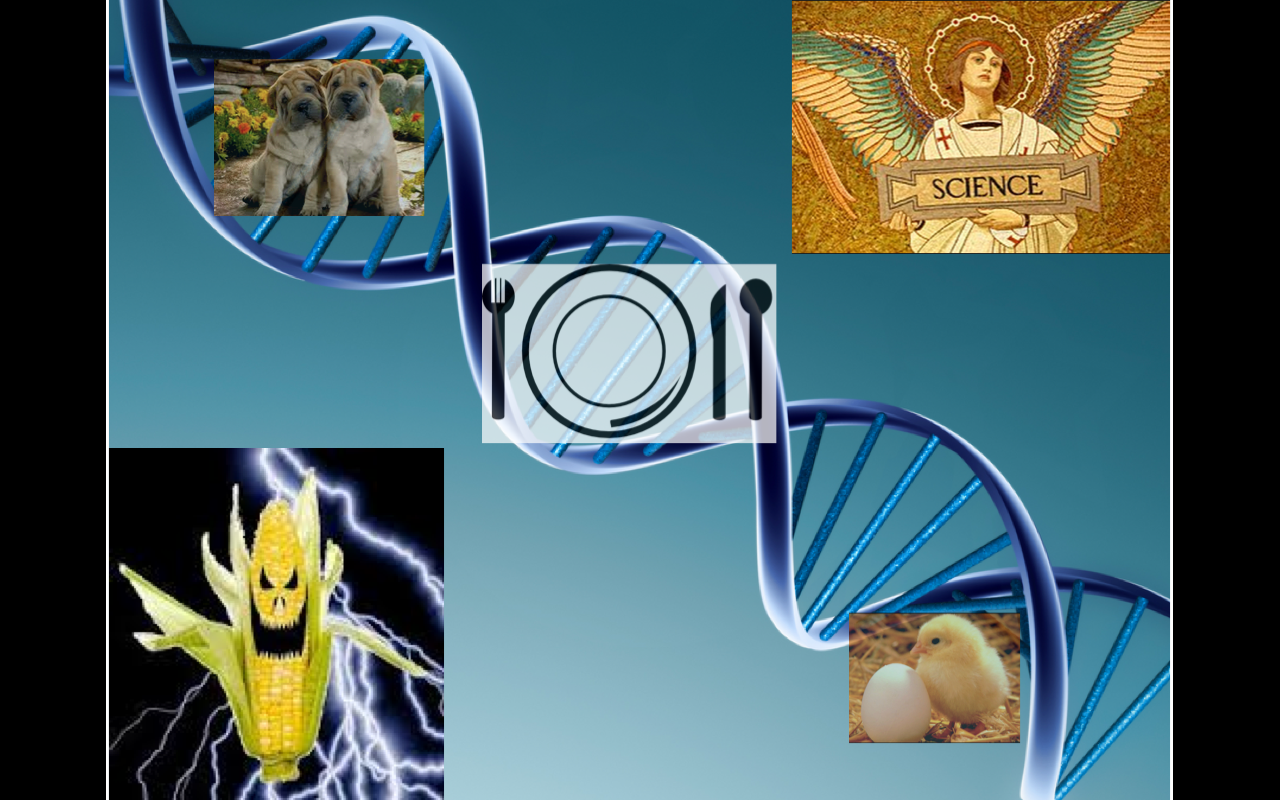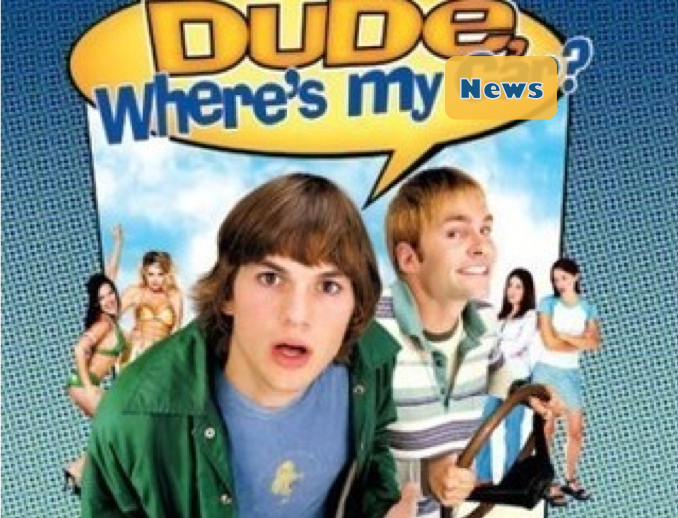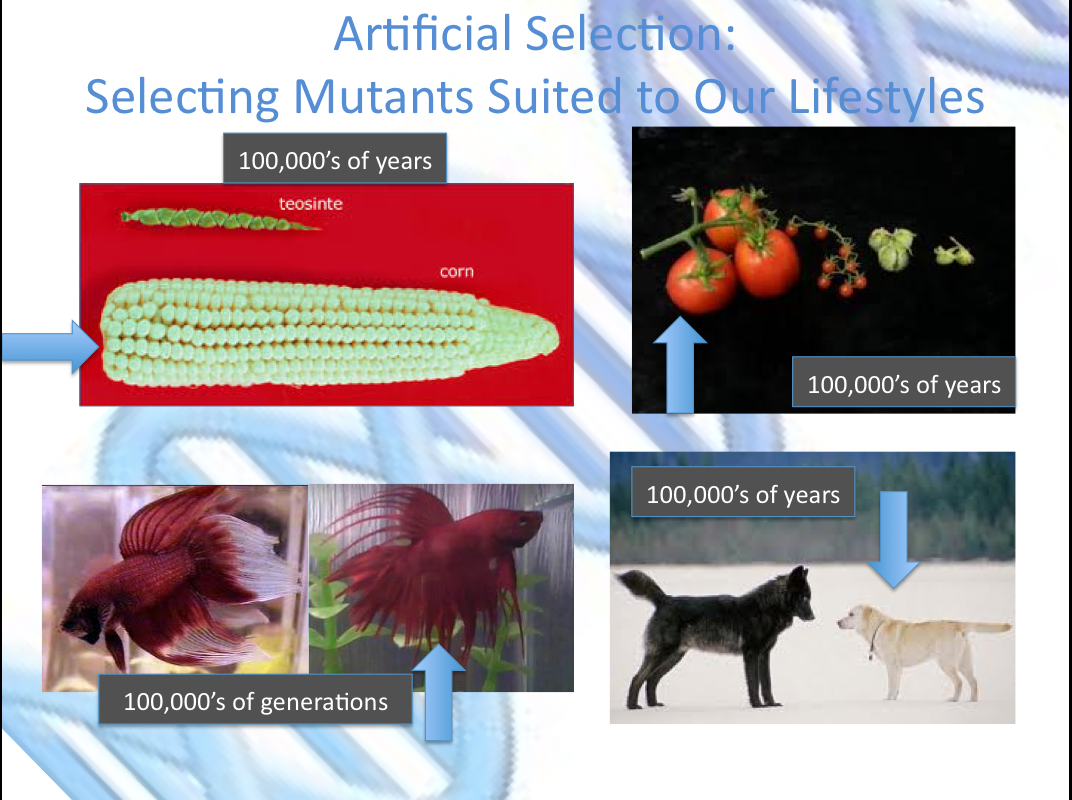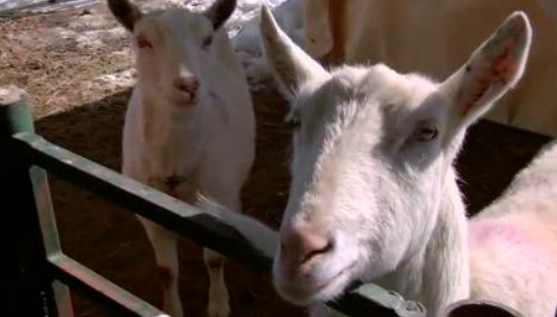What's in a Name? Genetically Modified Organisms

FAQs
Frequently, geneticists hear questions about genetically modified organisms (GMOs). I imagine highly successful musicians, actors, and actresses get asked 'how they were discovered' ad nauseam while artists probably hear, 'what inspires you' every time they meet a new friend. Each profession, I'm certain, has its own FAQ section.
Here's where we differ:

From public outreach events to family dinners, people desire not so much to ask real questions about genetic modifications, technology, agriculture, the global food system, nor advances in science but rather they seem to want to mount offenses and declare their point-of-view aggressively. Further, these points-of-view affect legislature and limit the directions of scientific research. Quickly, this becomes a discussion from which geneticists cannot ethically abstain.

Dude, Where's My Reliable News Anchor?
The age of the internet is upon us, and anyone with an Internet Service Provider, a cell phone, or a public library card can post an opinion (you are reading a blog right now, after all), but whose opinions influence our own? Who do we let in? Generations past had media services with reputations to uphold and scandals to unfold, but today news sources are pooled and sensationalized to sell.
But what about all of the documents available? The primary scientific literature, the textbooks online, the scientific magazines? Can't they be trusted?
They aren't all as 'free' as they ought to be, and they certainly aren't in the first 5 hits of google results when you type in "GMO" - in fact, those first hits are all negative propaganda - even though I just typed "GMO" not "GMOs are bad" or "GMO danger."
Google has recently broken GMO search returns in to categories so that news sources come up alongside the casual, opinionated blogger - what a leap for mankind.
Okay, so I've complained about the bias of the internet as well as the harsh, uniformed opinions I regularly hear from people about genetically modified organisms - you must think I am 100% FOR GMOS ALL OF THE TIME; sorry, but no.
Solutions, Like Chemistry, Aren't Always Easy 
What I refuse to do, as a geneticist, is support "organic" OR "GMO" because the real solution to the global food crisis will not look the same in Arizona as it does in California as it does in Florida as it does in Costa Rica as it does in Brisbane. The global food system is dynamic - it requires local solutions, local foods and strong communities to support long-term goals. The ideal answer includes all technology, all inherited wisdoms, inclusive environmental responsibility, and long-term resource management. Those solutions, though, rarely result in one company or a small group profiting obscenely and thus these solutions can be buried under a lot of trouble.
Go Home "Organic," You're Drunk
The "organic" label is just a label - it does not guarantee responsible farming nor does it ensure environmental nor food safety. Organic certification in the United States is unacheivable for many small farmers because of the sheer cost of the certification process. The only thing "organic" has come to mean here is higher consumer cost - blatant violations of organic protocols do not result in companies losing market shares (Legal complaint vs "organic" eggs; "Organic" milk ). In a world full of information, why is this able to persist? How do these products still move off of shelves? As with all things, a higher price does not guarantee a better product.
What's in a name? A rose, by any other name, would smell as sweetly. - Shakespeare
So what is a GMO?
The most basic definition is an organism (plant, animal, bacteria, or fungi) which has had a change to its genetic makeup (DNA, RNA, Chromatin, regulation, protein synthesis, etc, etc) that is not abundant in nature.

By this definition, a dog is a genetically modified organism; no where in nature do you find a pug.
All domesticated species are thereby 'genetically modified organisms' or products of artificial selection. The difference between corn and teosinte hardly escapes the naked eye - it takes a long time and a lot of natural mutations to see these two fruits become so different

The panels of comparisons between "Wild Type" and the artificially selected (but naturally occurring) "domesticated species" (in some cases just varieties, breeds, or races) illustrate the tremendous change humans have brought around as well as the (very roughly rounded) timeframe.
Many people envision "GMO" to mean a horribly disfigured mutant with fish eyes, corn leaves and the head of a lion, but as a geneticist, every domesticated crop, animal, or pet is a genetically modified organism. You can see, then, how it might seem absurd to bulk them all together.
There are two classifications geneticists consider when discussing a modern day, molecularly manipulated domesticated organism: cis and trans. Cis means "the same" while "trans" means different.
Cis
Generally, "cis" changes are those which could be naturally selected for - like breeding a wolf to a dog and selecting puppies that have the best of each parent.
 Let's say I wanted a German Shepherd with no hip problems and I know that wolves never have hip problems. I can breed a wolf to a German Shepherd and produce healthy puppies naturally.
Let's say I wanted a German Shepherd with no hip problems and I know that wolves never have hip problems. I can breed a wolf to a German Shepherd and produce healthy puppies naturally.
Unfortunately, the puppies won't behave, look, nor listen like my beloved German Shepherd. I will need to breed these hybrids back to German Shepherds for many generations - carefully selecting only the healthiest and best puppies at each step - to attain a 'mostly' German Shepherd dog without hip problems. This type of traditional breeding and backcrossing takes a considerable amount of time (think 10+ generations; potentially decades) and there are often undesirable traits that come along with the desirable ones. I may discover that the loyal, family-friendly trait that I adore in my German Shepherd is closely genetically linked to hip dysplasia and so, no matter how many times I breed and select, I keep ending up with vicious, healthy-hipped hybrids.

Imagine that same scenario in a tomato plant which is edible (domesticated like our dogs) and a pest-resistant wild relative (like a wolf) which is poisonous. I could try to breed them for decades to possibly, luckily hit upon a combination of genes that gave me pest-resistance AND edible fruits. Molecular geneticists and plant breeders see this solution like shooting a shotgun to clip out a coupon - it's messy, imprecise, and unlikely to yield an intact, useful coupon.
If you can molecularly identify regions in the genome that confer pest resistance, you can snip them out and paste them neatly into the domesticated tomato. Of course you still need to test the plant to ensure you have gained pest resistance with no other gene side effects (i.e. the natural poison), but you are certain of exactly what part of the wild plant you have placed in the genome of the domestic tomato. This is powerful because even if you did accidentally clip the wrong coupon, you can see that it's wrong and go back to clipping with a new target.
As a consumer, you're also more protected from GMO products than from 'traditional breeding' - anyone can sell you a wild, poisonous tomato plant hybrid and call it 'heirloom' because there are no master regulatory agencies to check on its safety (and no group could handle that level of regulation). However, a GMO goes through years of trials and safety checks before it can even be grown outside let alone be sold as food.
Trans
Trans genetically modified organisms are cases where the inserted gene(s) could not have been naturally bred into an organism. Quite some time ago, the Department of Defense started investing in safer, more efficient ways to help soldiers with serious facial-cranial injuries. One clever bit of research showed that spider's silk was strong enough to create bone scaffolding and harmless enough for the body to degrade as new bone and tissue was built (this research was nothing short of miraculous in comparison to older biomedical solutions). A major problem with this was that spiders are tiny and make very little silk compared to the amounts needed. To overcome this, goats were genetically modified to produce spider's silk proteins in milk. These goats can produce gallons of milk every single day! The silk gets harvested from the milk and further work can be carried out to see if this type of restorative medicine is safe before it is even considered as a medical option for people. This is an elegant solution to the spider silk rarity, but no one envisions a goat and spider having offspring together (outside of Greek mythology) so this is a perfect example of trans-gene modification.
Tools are Tools
The natural world is violent and pretending to have perfect mastery (skipping the 'testing' and 'research' aspects) can be disastrous. Believing we should exist in a pre-modern era because it was 'better' is equally disastrous - technology saves lives. Saying all GMOs are evil is like saying all lasers are evil. I can easily come up with a single, evil laser example: Dr. Evil used lasers - so all lasers are evil. Then again, my friend just had LASIK and can see without glasses or contacts for the first time in his adult life and my cat was entertained for hours with a laser pointer - it would appear lasers can be used for good as well as evil.

In unethical or unmindful hands, of course biotechnology can be dangerous, but here in the US in 2015, regulations and ethics abound.
Now that we know, where do we go?
So if GMOs aren't evil and "organic" has come to mean nothing, how do we find good, safe sustenance?
Know your farmer. (check out this blog)
Or at least take the time to google them! Look for complaints (and lawsuits) filed against animal farmers (for cruelty, poor waste management, illegal use of antibiotics, etc etc), look at the city or country your produce is coming from and consider how those local laws affect the use of chemicals (Mexico's water pollution hurts the global water supply)
Think globally, act locally
If you have access to a Farmer's Market, go and ask lots of questions! Ask to see the farm - most small to medium sized farms have farmers/owners who enjoy involving their community members and offer annual farm tours. Better yet, start a community garden or a container garden and contact your local Native Plant Society to see how to efficiently manage water, plant for each season, and attract pollinators.
The global food crisis isn't going to resolve itself - you need food, but the food system needs YOU!
Be active, be honest, be kind and ask questions.

